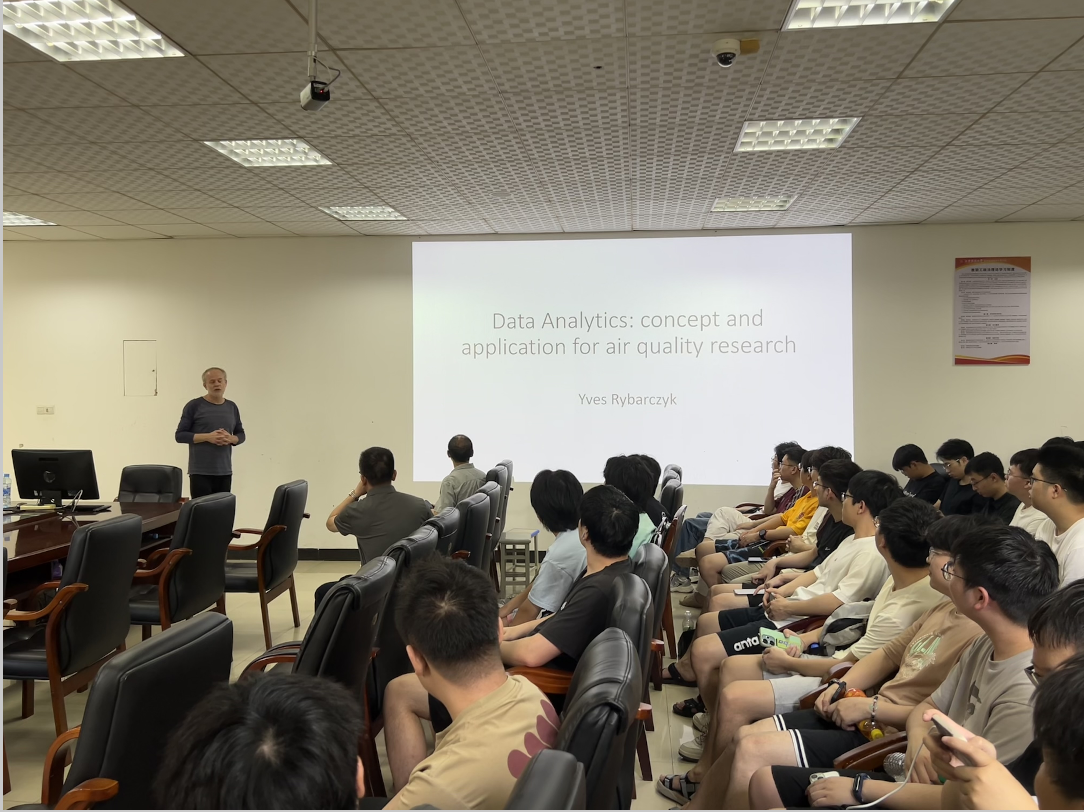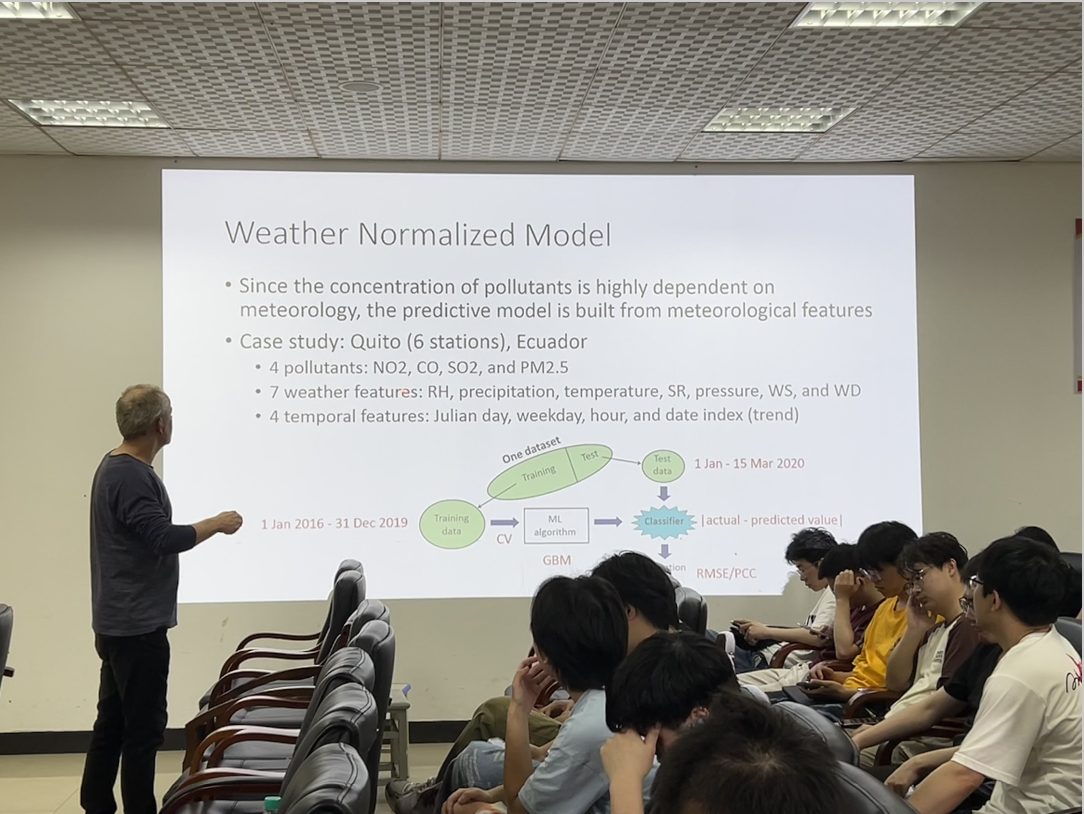Professor Yves Rybarczyk from Dalarna University in Sweden Visits Our School for aLecture
On the afternoon of May 21, at the invitation of the School of Softwareand Internet of Things Engineering, Professor Yves Rybarczyk from Dalarna University in Sweden delivered an academic lecture titled"Data analytics: concept and application for air qualityresearch" in Room H202, Huilu Building, South District, Mai LuCampus. The lecture was presided over by Liu Yanqing, the director ofthe International Software Engineering Department of the School of Software and Internet of Things Engineering. Some teachers and all first-year graduate students from the school attended the lecture.

Startingwith practical cases, Professor Yves systematically elaborated on thecrucial role of data science methods in environmental research.Taking the changes in air quality during the COVID-19 pandemic as anexample, he vividly demonstrated how to use data analysis techniquesto accurately distinguish the impacts of policy interventions andnatural factors on air quality. Particularly noteworthy is the"meteorological standardization model" developed by histeam, which can effectively eliminate the interference of weatherfactors on pollutants, thereby more precisely assessing the impact of human activities on the environment and providing strong technical support for environmental research.

Onthe methodological level, Professor Yves focused on important aspects such as data preprocessing, feature engineering, and model construction. He emphasized that high-quality data processing is the cornerstone of ensuring the reliability of research, and the rational selection of analysis methods directly affects the scientific nature of research conclusions. Through empirical research in Quito,Ecuador, his team successfully quantified the real changes inpollutant concentrations during the pandemic, providing solid scientific evidence for the evaluation of environmental policies andfully demonstrating the application value of data science inpractical environmental research.
Atthe end of the lecture, Professor Yves had an in-depth exchange with the teachers and students present on the development prospects ofdata science. He pointed out that interdisciplinary cooperation is animportant way to promote innovation in environmental research. Thecross-fusion of different fields can spark more innovation. He looksforward to collaborating with experts from more fields in the future to jointly tackle challenges in environmental research.
This lecture provided a platform for our school's teachers and students toaccess international cutting-edge research methods and broadened their horizons in the field of data science and environmental research. The school stated that it will continue to actively invite well-known scholars from home and abroad to conduct academic activities in the future, promote the cross and innovative development of disciplines, and create a richer academic exchange environment for teachers and students.


